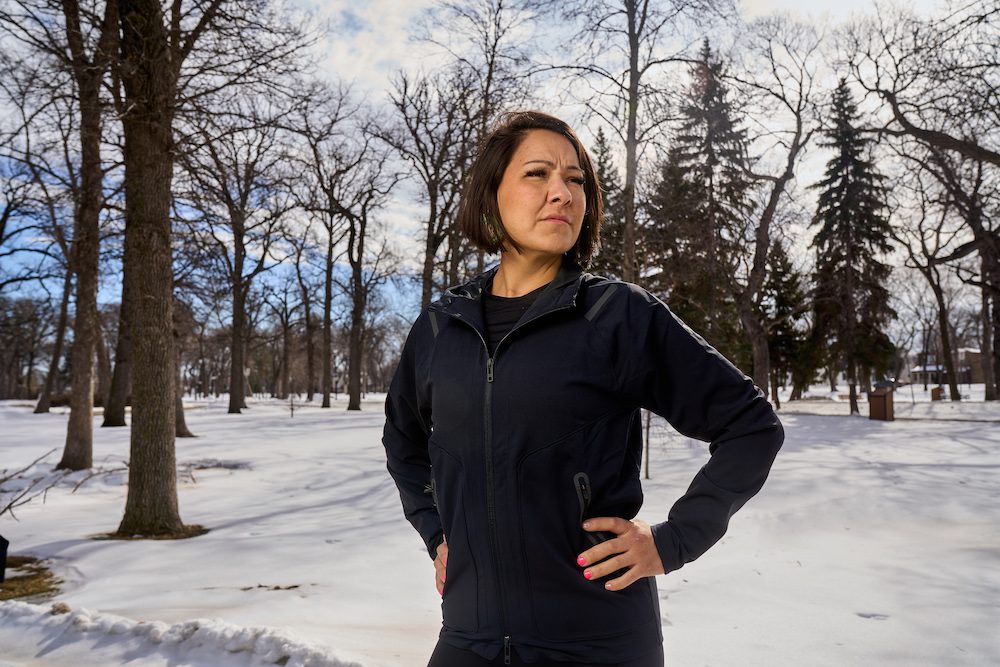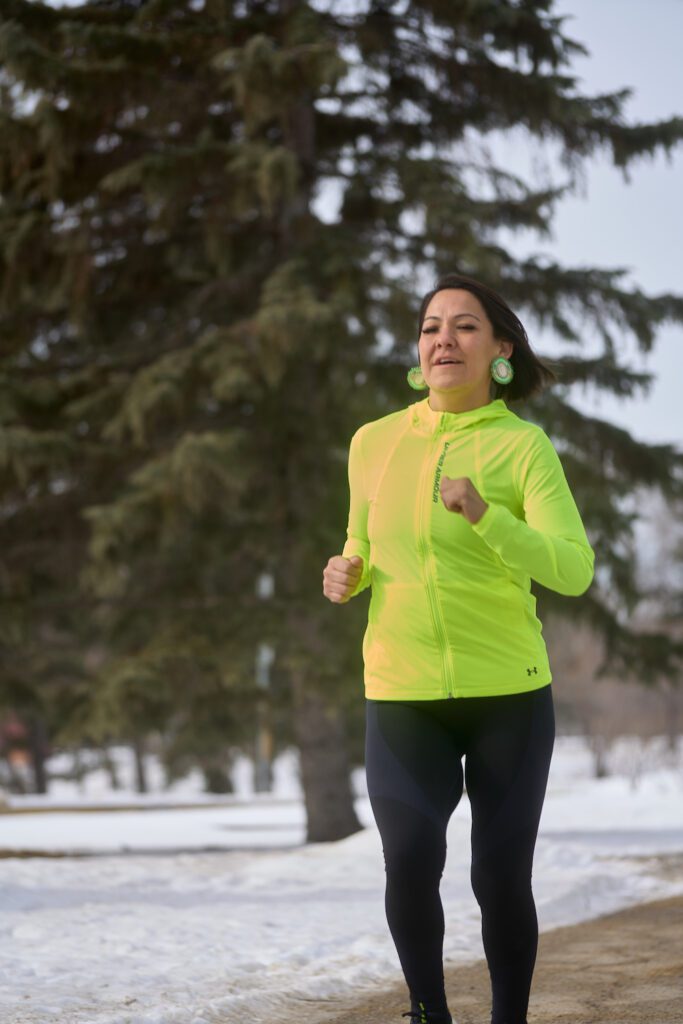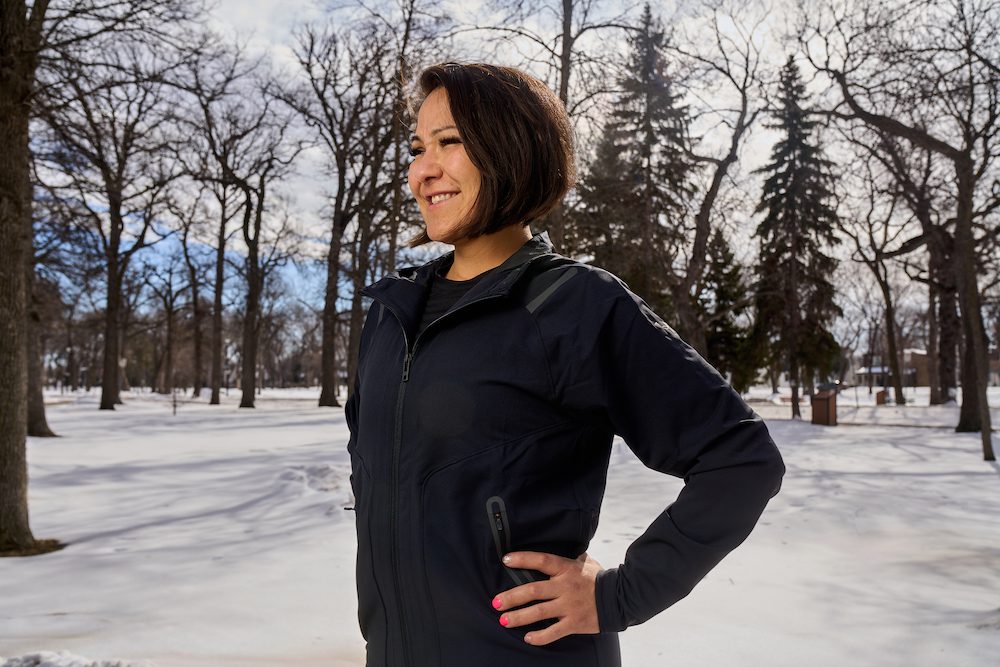Under Armour has teamed up with Canadian Running to produce the Under Armour Diversity Series — an exclusive feature content series designed to highlight and promote individuals and organizations who have demonstrated a commitment to grow the sport of running, support those who are underrepresented and help others. The series will feature stories and podcasts highlighting these extraordinary Canadians who are making a difference in their communities and on the national running scene.
Samantha (Sammi) Powderhorn’s enthusiasm for running and what it can do to change your life is infectious. When she first was profiled in the Under Armour Diversity Series earlier in the year, talking about going from being homeless and battling addiction to now being a marathoner who’s back in school to help others who are struggling, her story moved thousands of readers. Sitting in her car between university classes, Powderhorn caught up with Canadian Running, sharing how her life has changed as a result—and how the Under Armour shoe donation and run she organized for kids in the Sayisi Dene First Nation has also started to change lives in her old community.

“I’m training for a marathon that’s happening in November,” she says—it’s the same one she did last year, the Polar Bear Marathon (and yes, there are polar bears on the course). “But it hasn’t been easy. Running is so still so new to me, and back in February, I noticed that my hip felt kind of twisted inward, and I couldn’t really run for about a month and a half. Not running was really hard for me! Finally, my running coach suggested that I start yoga, and I start stretching, and I start walking, then slowly add running back in as long as it didn’t hurt. Luckily, that seemed to help, and now I’m back to running three times a week now. It’s been such a learning experience.
Under Armour Diversity Series: Winnipeg’s Samantha Powderhorn
“Running has really affected my life, not just physically, but mentally and spiritually as well,” she adds. “It’s such an honour to be able to tell my story and to be that voice for all the Indigenous women who might be afraid to tell their story. Since the first article in this Under Armour series came out, I’ve had so many opportunities to speak about my journey, and it’s been incredible. I think back to being this girl trapped in this cycle and stuck in an abusive relationship, and to see how far I’ve been able to come—I’m just so happy.”

Because she’s from a remote community—the Sayisi Dene First Nation is a small reserve of roughly 300 people at Tadoule Lake, a fly-in community located half an hour (by plane) from Churchill, Man.—she instantly knew how she wanted to work with Under Armour to donate gear this summer. It wouldn’t be enough to just send shoes to the kids in school there: She wanted to show them what was possible by organizing a run/walk the same day. Get a pair of sneakers and learn how to use them. It was an ambitious plan, but Powderhorn has become an ambitious woman.
“I come from a community that’s really tiny, and where there’s a lot of intergenerational trauma,” she says. “My vision was to take all these sneakers there and do a little running event with a bonfire afterward. We hit so many hurdles getting the logistics for the run and bonfire set up—the sneakers were easy, but everything else was complicated. And then, even when everything was organized, we were supposed to fly there Friday for the event to happen Sunday, but our flights got delayed because of the forest fires. We ended up getting there the morning of the run.”

The event still went off without a hitch, with dozens of youth from the community coming, getting running shoes and going out for a 5K run or walk. “It was so amazing to see, because I got people out there that I never normally would see walking,” she says. “I was running and walking and chatting with them, and I saw this one young girl just sprinting away. I didn’t know who it was at first, then I realized it was my niece! I was so happy and so proud. It made me feel so empowered, because I know that she sees me and the running I do, and I hope that’s helped inspire her.”
For Powderhorn, the chance to talk about her transformation brought about by discovering running is as important as the running itself—but she wants to be able to pursue both of those goals. She’s not trading her running career for public speaking; she’s just as focused on setting PBs in her running as she is in talking to other women about how to deal with hard situations.

“I’ll do whatever it takes to be that positive, athletic role model they need,” she says. And that includes some seriously early morning runs. It has to, when you’re a mom of six. “If I don’t run early in the morning, I won’t be able to run at all,” she says. “I have to make my schedule according to my routine with my children, with work, with school. But if I don’t run, I feel off. I don’t feel like me. And it’s important to me that my kids see my dedication to running, and that I don’t use them as an excuse not to run. One of my coaches said, ‘if it’s important to you, you’ll make time for it.’ That’s what I live by with my running. I was 250 pounds and battling addiction, and I know how far I’ve come.”
Since she found running just a few years ago, everything has changed. She’s nearly three years sober, she’s cancer-free, she’s healthier and happier than ever. “I’ve grown so much,” she reflects. “And when the first article about me came out earlier this year, it changed how I saw myself. I never really realized how powerful and inspirational my story is until it was written on paper and I was hearing how many people resonated with it. It’s really, really grown me as a person and athlete. I wouldn’t be where I am right now if it wasn’t for all these resources and people supporting and encouraging me to be who I am today. I come from a deep, dark history of childhood trauma, neglect and addiction. I come from a dark past, and me breaking cycles for my children is my huge why for my sobriety, my health journey and my running. For them to say that they’re proud of me is the biggest win.”

